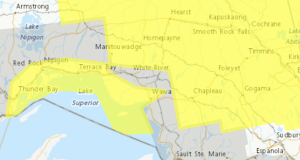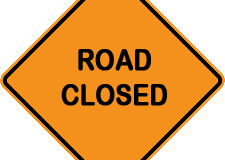Most Canadians are obviously feeling the financial pinch these days. Inflation, while definitely coming down from the massive highs of 2022, still averaged 3.9 percent in 2023, according to Statistics Canada, which is still nearly double the Bank of Canada’s benchmark goal of 2 percent year-over-year. One area where they are really feeling the pinch is the price of oil and gas. Prices have risen dramatically in the past few years, allowing oil and gas companies to shatter profit records at our expense. It may just be time to have the Competition Bureau investigate to ensure they aren’t ripping Canadians off.
To say oil and gas companies have done well in the past few years is seriously underselling it. Oil and gas companies in Canada made a combined $70 billion in profits in 2022. These profits include a combined 60 percent increase in the profits of oil and gas extraction, as well as a doubling of profits from refining from 2021, when the industry made a combined profit of $42 billion. Some increases in profits would be understandable, considering we were still dealing with many of the issues related to the Covid-19 pandemic at the time, but its hard to fathom an almost $30 billion increase in profit margins. Median compensation of CEOs of oil and gas companies rose by 20 percent in 2022 alone.
As world oil prices have come down, oil and gas profit margins have remained high. Canadians are already paying to subsidize these incredibly profitable companies, to the tune of $8 billion in loan guarantees for the Trans Mountain pipeline, $7.4 billion in public financing through Export Development Canada (EDC), and $1.3 billion for untested carbon capture and storage projects, according to a recent study from Environmental Defence. There’s no logical reason any government should be giving an already hyper-profitable sector more money to continue to hold the economic scale under its thumb. They don’t need social welfare from the Federal government to then turn around and price-gouge consumers. It was wrong when the government decided to give Loblaws $12 million to buy new freezers, and that’s dwarfed by the money we give to the oil and gas sector.
Clearly, we need to examine the profits of oil and gas companies to make sure they aren’t gouging consumers. New Democrats have demanded an inquiry into price gouging to ensure people are paying a fair price at the pumps. The Competition Bureau has the power to examine these details, all it takes is directive from the Minister of Innovation, Science and Industry to conduct a market study. A report a few years ago from the B.C. Utilities Commission found that at least 13 cents per litre of higher gas prices at the pump were “unexplained” in a competitive market. The Competition Bureau has done this work on a smaller scale already. The regulator has laid charges 24 times in the past 16 years related to price-fixing at gas stations, fining individual stations up to $1.85 million. It would not be a stretch for the regulator to examine competitive behaviours at a larger scale.
If there is gouging, the government must use every tool they have to bring down prices. An excess profits tax on oil and gas companies, according to the Parliamentary Budget Office, could bring in as much as $4.2 billion dollars, which could then be used to put more money back in people’s pockets.
It should be the government’s job to clamp down on corporate greed and ensure that Canadians are paying a fair price for the services they receive. When there is little competition in a market, such as in the grocery, telecom, air travel, and banking industries currently, people pay more and get less.
- Reflecting on the Challenges and Accomplishments of 2024 - December 19, 2024
- Carol Hughes – CRA Hack Needs a Thorough Investigation - November 13, 2024
- Carol Hughes – Is it Time to Get Tougher on Residential School Denialism? - November 5, 2024
 Wawa-news.com Local and Regional News
Wawa-news.com Local and Regional News

